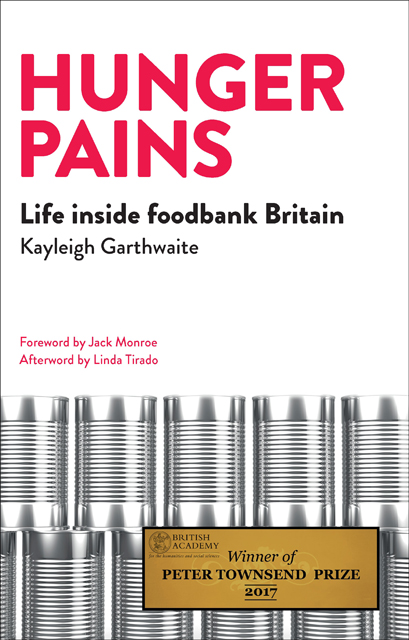Book contents
- Frontmatter
- Dedication
- Contents
- List of figures and boxes
- Acknowledgements
- Foreword by Jack Monroe
- Introduction
- one Researching foodbank use
- two Foodbanks: what do they do?
- three The politics of foodbank use in the UK
- four Why do people use a foodbank?
- five All work, low pay: finding, keeping and doing precarious jobs
- six “Doing the best I can with what I’ve got”: food and health on a low income
- seven Stigma, shame and “people like us”
- Conclusion: is foodbank Britain here to stay?
- Afterword by Linda Tirado
- Notes
- Bibliography
- Index
four - Why do people use a foodbank?
Published online by Cambridge University Press: 15 April 2023
- Frontmatter
- Dedication
- Contents
- List of figures and boxes
- Acknowledgements
- Foreword by Jack Monroe
- Introduction
- one Researching foodbank use
- two Foodbanks: what do they do?
- three The politics of foodbank use in the UK
- four Why do people use a foodbank?
- five All work, low pay: finding, keeping and doing precarious jobs
- six “Doing the best I can with what I’ve got”: food and health on a low income
- seven Stigma, shame and “people like us”
- Conclusion: is foodbank Britain here to stay?
- Afterword by Linda Tirado
- Notes
- Bibliography
- Index
Summary
As we saw in Chapter Three, the idea that more people are using foodbanks because there are more foodbanks is a popular one. But, in reality, people are using foodbanks as a last resort, when the benefit delays, sanctions, debt and low pay have finally caught up with them.
This chapter starts by talking about abuse of the system, challenging some oft-recited stereotypes about who uses foodbanks and why. These stereotypes were shared, in varying degrees, by the foodbank volunteers, staff at referral agencies, local residents living in the affluent areas of the borough of Stockton-on-Tees (as we will see in Chapter Seven) and people using the foodbank themselves. If I didn’t discuss this somewhere in the book, I wouldn’t be telling the whole story. The other volunteers wouldn’t recognise the foodbank I was describing without me talking about people who use the foodbank who were seen as ‘undeserving’.
‘Abusing the system?’
The general view among the volunteers was that most people who used the foodbank were there due to genuine need, but ideas of who was deemed to be ‘deserving’ or ‘undeserving’ were regularly discussed. This is not unsurprising, given that the attempt to distinguish between different categories of the poor is almost as old as the modern British state. Almost two centuries ago, under the Poor Law, those judged deserving of state support were granted assistance, but awarded the implicit status of second-class citizens. It’s here that the distinction between the ‘deserving’ and ‘undeserving poor’ became a legal one. Writing in 1786, physician, geologist and vicar Joseph Townsend said in A Dissertation on the Poor Laws:
Hunger will tame the fiercest animals, it will teach decency and civility, obedience and subjection, to the most brutish, the most obstinate, and the most perverse.
Who are today’s new ‘undeserving’ poor? The familiar tabloid assumption is that you will know them when you see them. The undeserving poor drink litres of cheap cider in the daytime, have too many unruly children, keep dangerous dogs and spend their lives lolling about on the sofa. Now, as in the past, the ‘undeserving’ poor make an easy and popular target, especially when public money is tight. These ideas of ‘undeserving’ and ‘deserving’ sometimes crept into volunteers’ perceptions of why people use the foodbank.
- Type
- Chapter
- Information
- Hunger PainsLife inside Foodbank Britain, pp. 73 - 96Publisher: Bristol University PressPrint publication year: 2016

